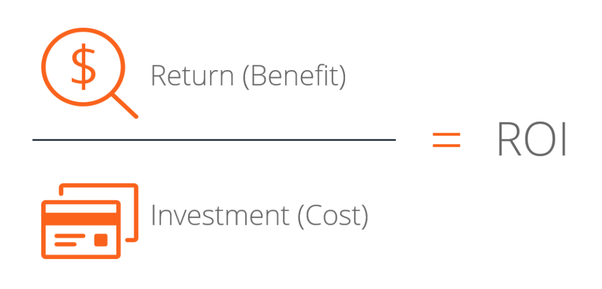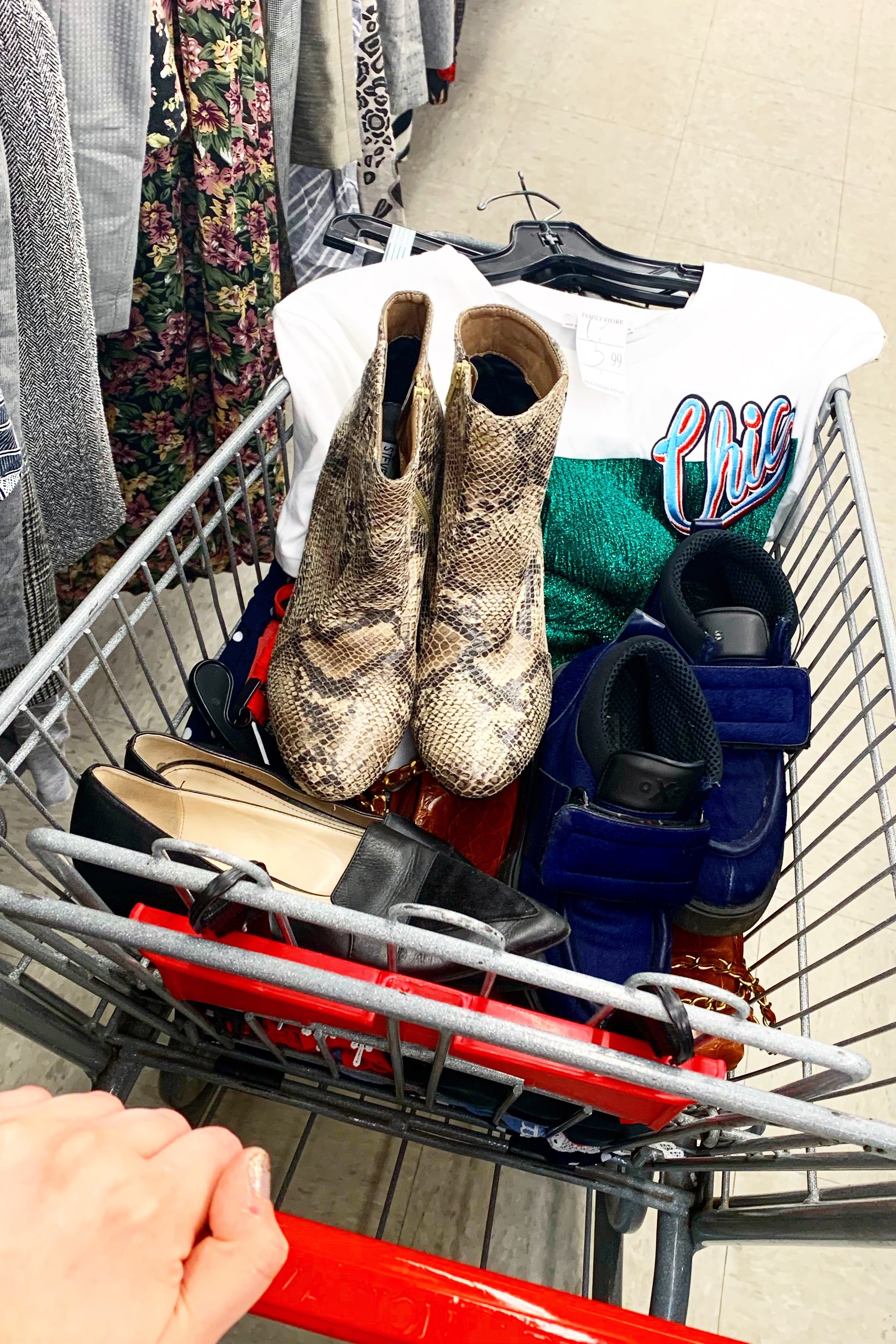
Congratulations everyone! We have officially made it halfway through my FREE Reselling as a Business Mini Course! I hope that this course has been helpful to you and your reselling business thus far! Today, we are going to talk about most people’s least favorite reselling topic….finances. I know, I know. It is not the most exciting topic to discuss BUT it is the very important to the success of your reselling business. Before we get started, if you missed any of my previous discussions, please be sure to check them out HERE, HERE, and HERE.
Week 4: Finances
In this section of the course, we will be discussing 4 topics related to finances:
What Do I Need to Track Within My Business Finances?
An In-Depth Look into Cash Flow
An In-Depth Look into Return on Investment
**BONUS: A Quick Note on Federal and State Taxes
A) What Data Do I Need to Track Within My Business Finances?
When it comes to tracking finances for your business, it is very important to understand a few basic financial concepts and equations. [ A Quick Note: I am by no means a financial guru but I do have 8 years of reselling and business experience. The information that I am going to share with you today in this post is information that I have learned over the past few years; This information has been instrumental in getting me where I am today.] With that being said, let’s cover a few basic financial terms and equations that will be helpful to you and your business!
Cost of Goods: As a reseller, you will hear this term quite frequently. Cost of Goods refers to how much your inventory costs you to purchase. This includes all items purchased at thrift stores, retail stores, discounted stores, consignment stores, etc. [If an item is from your personal closet or was gifted to you, these items are typically assigned with a value of $0, indicating that this item has not costed you any additional funds.]
Total Gross Sales (Revenue): This term refers to how much money was earned prior to deducting business expenses, fees, taxes, returns, and cost of goods.
Profit: This term refers to how much money remains after deducting business expenses, fees, taxes, returns, and cost of goods from your total gross sales.
Business Expenses: This term refers to all money that is used towards purchases for the business such as supplies, programs, and equipment. In reselling, this would include items such as packaging supplies, cross-listing programs, a printer, and photographing equipment/supplies. [You may also hear a term called Petty Cash used within this category as well; This term refers to the money used to make small purchases that may or may not be business-related, such as buying a cup of coffee before starting your work day.]
Cash Flow: This term simply refers to the money flowing in and out of your business. It allows you insight into the success of your business. We will discuss this in greater detail below.
Return on Investment: This is a financial ratio used by an investor to help calculate the benefit that the investor will receive in relation to the cost of the investment. We will discuss this in greater detail below.
B) An In-Depth Look into Cash Flow
As mentioned previously, cash flow refers to the money flowing in and out of business. Within a business, there can be positive and negative cash flow.
Positive Cash Flow refers to when a business has more revenue than expenses. In this scenario, a business can cover all expenses from sales and build a cash reserve each month. The future for a business in this situation looks great as there is stable growth.
Negative Cash Flow refers to when a business has more revenue than expenses. The money made from sales will not cover your expenses and you have to cover your expenses from your cash reserve. A business in this scenario has a rocky future ahead and could be experiencing declining growth.
Why is it Important to Keep Track of Your Cash Flow?
There are a few reasons that you should keep track of your business’ cash flow:
Make Better Business Decisions
Better Understanding of Where Money is Being Spent Within Business
Able to Protect Business Relationships (Think Suppliers)
Ability to Expand Business at the Right Time
Cash flow is something that most business’ struggle with, myself included. Getting your business to produce consistent positive cash flow is difficult and usually will take some time to perfect. A good way to get yourself there is to track all of your revenue and expenses and see if there are places that you can improve within your current business practices.
C) An In-Depth Look into Return on Investment
As previously mentioned, return on investment refers to a financial ratio used by an investor to help calculate the benefit that the investor will receive in relation to the cost of the investment. Basically, it is a calculated way for investors to decide whether or not to take an investment risk. Many investors like to use this method when evaluating a potential investment because it is simple and easy to use and is universally understood.
Calculating your ROI is really simple:

All you have to do to calculate the ROI is divide the business’ net income by the cost of the investment. If the ROI is worth it for the investor, then they will invest in the company.
However, ROI doesn’t just have to be used by investors. As a reseller, you calculate ROI every day and don’t even realize it. Let’s look at an example:
The most likely time that you calculate ROI is while sourcing. When you are sourcing, you are looking for items to make a profit, right?! BUT before you actually buy these items, what do you do?! Typically, you run comps and see if it is actually worth your time and money to buy these items! This is the perfect example of calculating ROI. When you are running comps and weighing the pros and cons of each item, you are calculating the risk and return on your investment. If the item seems to check all of the boxes of being a good investment and making you profit, then you buy the item and if not, it is left behind. It’s that simple!
D) A Quick Note on Taxes
Before I end today’s post, I wanted to touch on taxes quickly. [I am not an accountant and have limited knowledge on taxes myself but I did think that it was something worth covering when talking about business finances.] One of the biggest misconceptions that people have about reselling is that they don’t have to pay taxes on the items that they sell because they are just selling their old stuff “for a little extra spending money and/or for fun.” Not going to lie, I thought the same thing, especially in the beginning of my reselling journey when I was just a hobby seller. Years later, I learned from speaking with an accountant that if you are making any sort of profit on an item, then it is technically considered income and you have to claim it to the government. Yikes! If you are going to go into reselling, please keep that in mind from day 1. I know that it will probably be the furthest thing from your mind at that point BUT if your business ends up flourishing quickly like mine did, you need to have a basic understanding of your state’s taxes and federal taxes.
I have discussed how to set up the proper foundation for your business in previous posts so I will link those HERE and HERE!
If you don’t already, be sure to check out my Instagram for more Reselling Tips at @ RecycledRosesGuide (Click HERE) and my Facebook page HERE.
You can instantly shop all of my looks by following me on the LIKEtoKNOW.it shopping app HERE.
To get email notifications for my next blog post and to receive my monthly Reseller Recap (with freebies), sign up for my emails below:
Baci,



